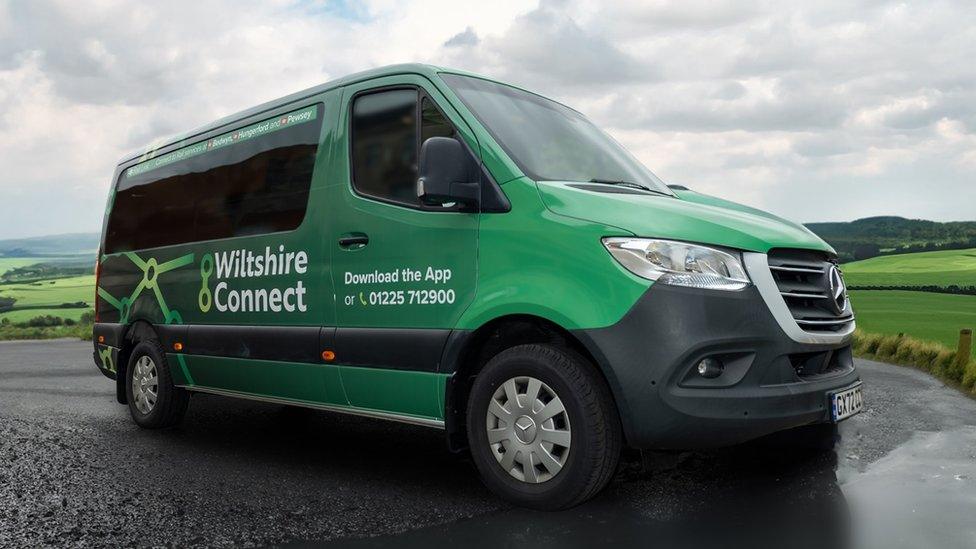About 40% of Wiltshire bus miles get council cash
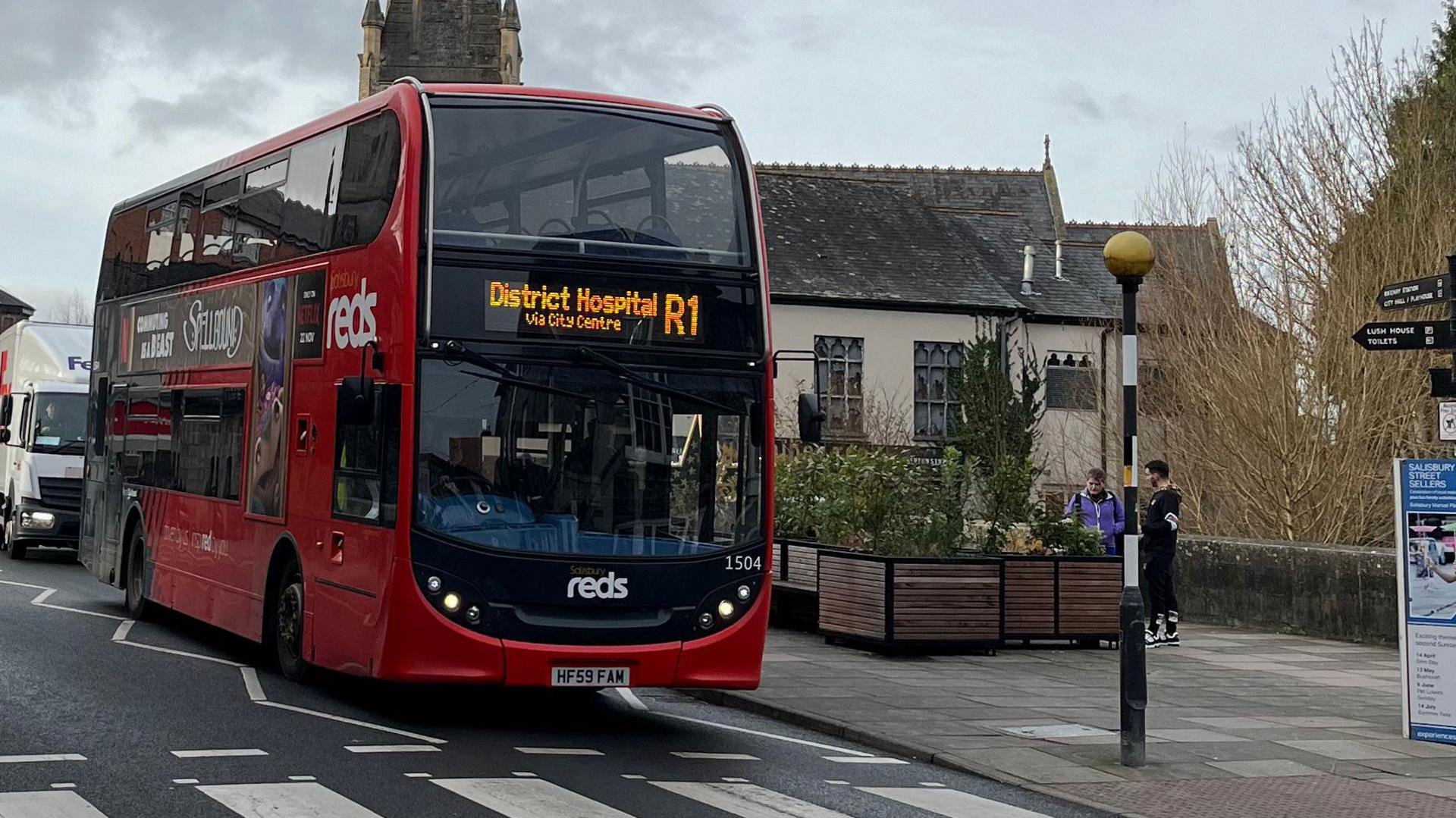
Wiltshire's size and the large number of rural communities make it harder for some bus services to be profitable
- Published
More than 40% of Wiltshire's bus mileage is currently supported financially by the council and it has been the highest subsidised county in the West area for more than a decade.
Last year, neighbouring Gloucestershire - also a rural county - had more than 20% of its services subsidised.
Wiltshire Council's cabinet member for transport - councillor Tamara Reay - said it was "absolutely" worth the money.
Andrew Sherrington, manager of the Salisbury Reds bus company, said the council has been making an effort to get buses to rural areas in the county.
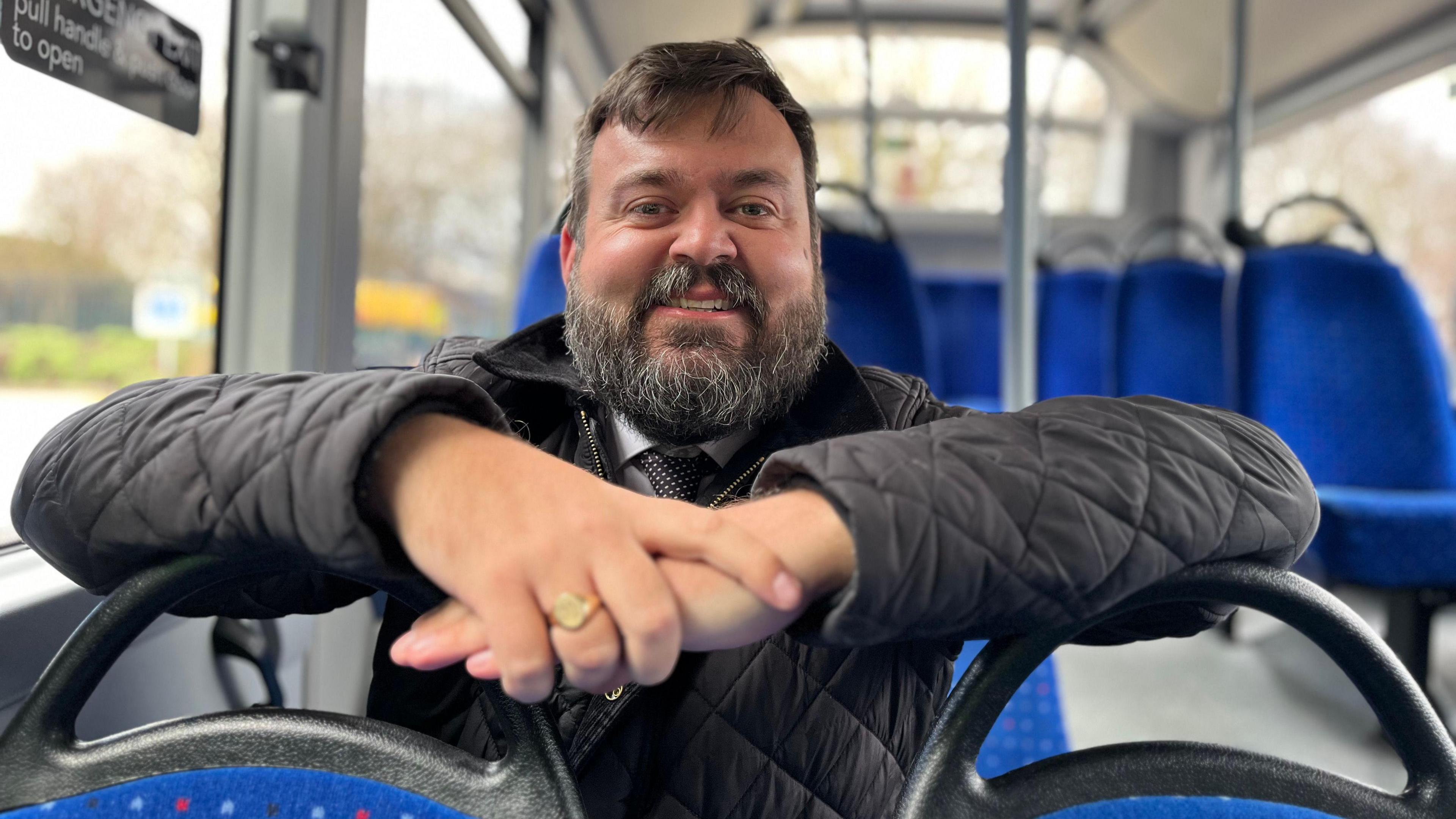
Andrew Sherrington is the general manager for Salisbury Reds and the Swindon Bus Company
Why is it so high?
The number of subsidised miles in Wiltshire has dropped from 57% in 2010 when 4.83m miles were supported as opposed to 3.66m purely commercial.
"I think Wiltshire Council has committed itself to preserving a lot of bus services compared to other counties," said Mr Sherrington, the general manger of Salisbury Reds and Swindon Bus Company, which are both owned by Go South Coast.
"Some rural populations have no access to public transport at all."
He sees two sides - Swindon, an urban area with hardly any supported miles, and a large swathe of Wiltshire countryside which has a much smaller population.
The council spends about £7.3m on bus services and £3.8m on concessionary fares, such as bus passes.
Councillor Reay said companies often cannot run rural services alone as they just would not make money.
"Many people don't have a car. Buses enable people to get around, to connect with people. Otherwise some people would be very, very isolated."
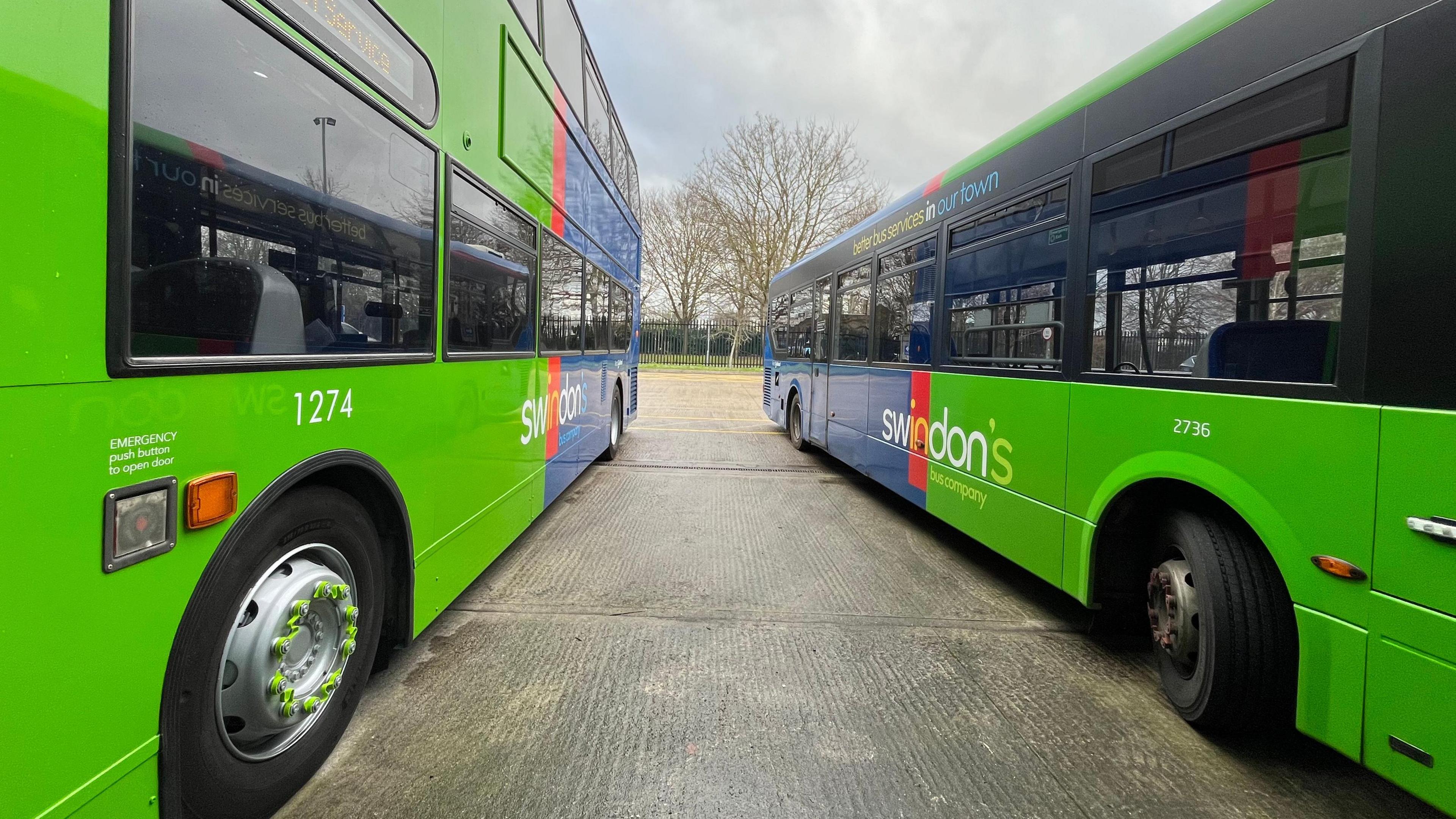
In Swindon - which is mostly urban - only about 4% of bus miles were supported in 2023/24
Government fare increase
Mr Sherrington said he was pleased with how their rural services were performing.
The government's £2 single fare scheme to get people back on the buses post-pandemic has been "really successful, particularly on our longer routes".
He said: "I don't think we've got anything particularly to worry about, it has brought people back to our buses."
However, things are to change soon, with the government planning to increase the single fare cap to £3.
Mr Sherrington said they were always aware "there was going to have to be an exit strategy somewhere" but with Wiltshire being so big, the fare would still provide good value on longer routes.
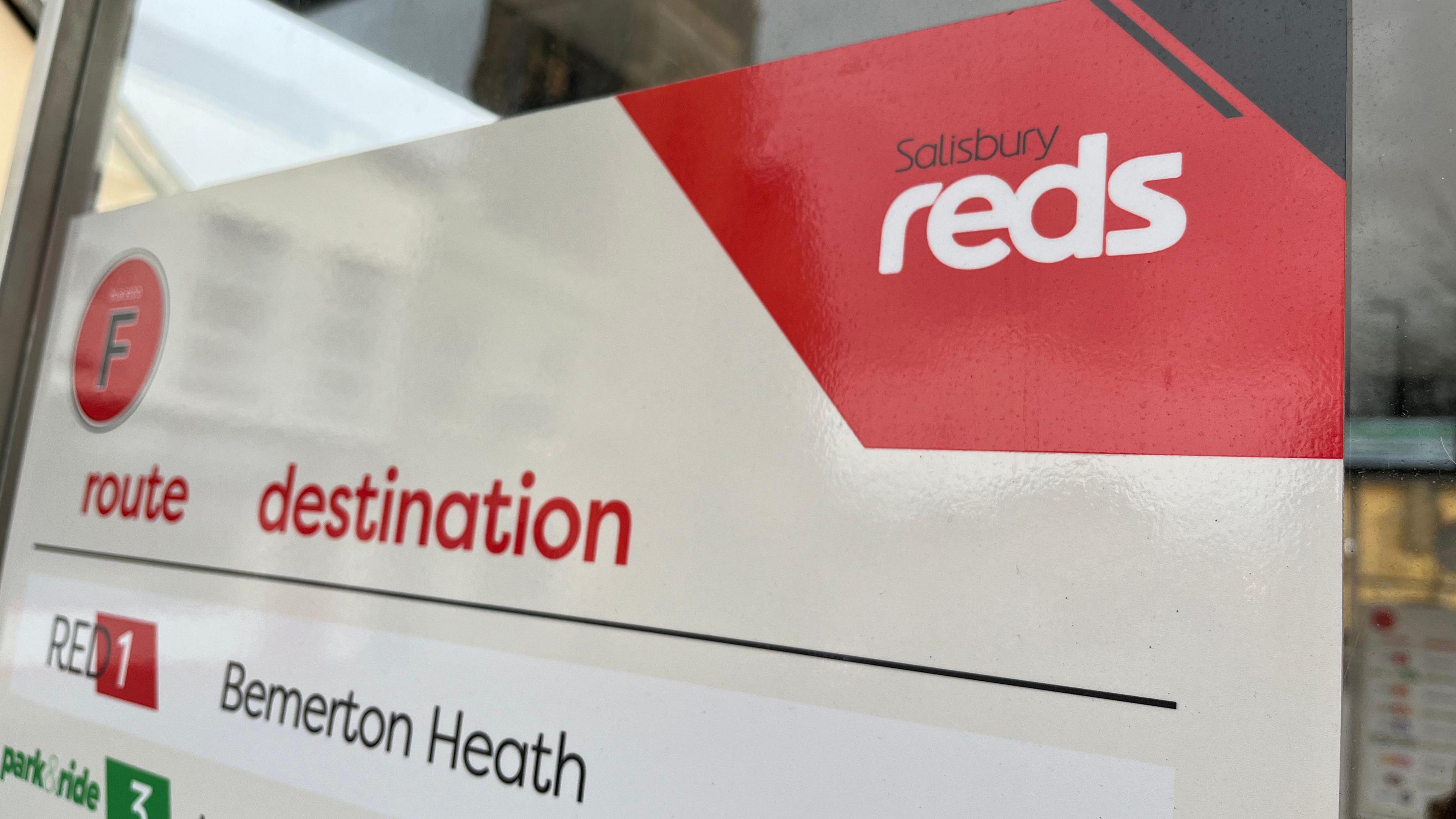
Salisbury Reds connect a lot of small rural communities to each other and Salisbury
One of the recent developments in rural services that both Mr Sherrington and councillor Reay say is a success is the Wiltshire Connect Service, initially launched in the Pewsey area.
It is more flexible, enabling people to book the bus and not have to travel a long way to a bus stop or only at very particular times.
Councillor Reay said the new service had seen passengers numbers increase by a third compared with the timetabled service.
But one type of service is still a little unloved - park-and-ride buses.
Salisbury has five park-and-ride options and Mr Sherrington said recovery following the pandemic has been slower for them compared other services.
Wiltshire has had a further boost in its bus funding recently, with £7m from the government to improve services.
The council has also been asking for public input on future public transport with a consultation for a new local transport plan., external
Get in touch
Tell us which stories we should cover in Wiltshire
Follow BBC Wiltshire on Facebook, external, X, external and Instagram, external. Send your story ideas to us on email or via WhatsApp on 0800 313 4630.
Related topics
- Published21 November 2024
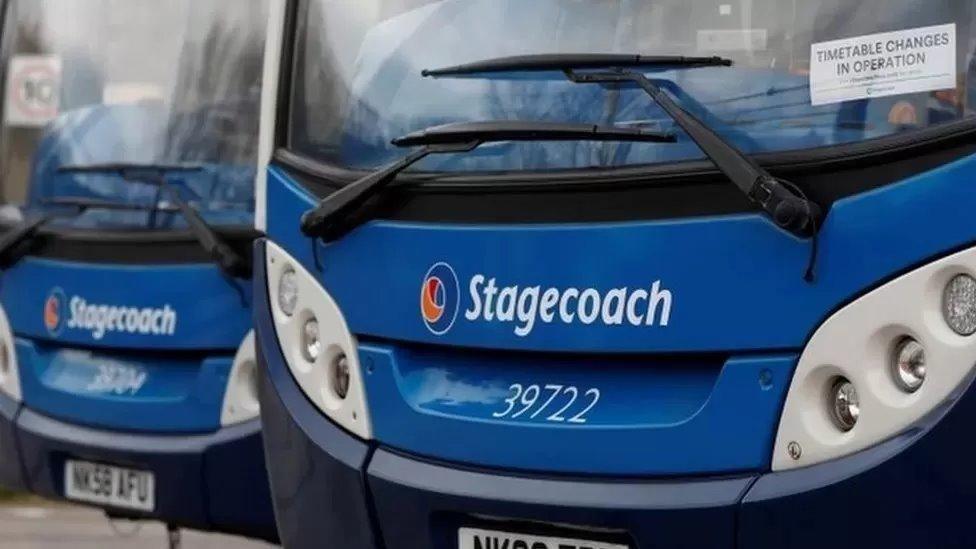
- Published30 October 2023
